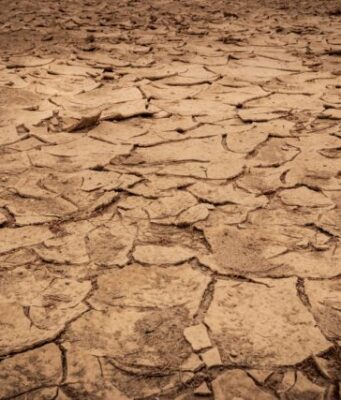The ozone layer - which protects us from harmful ultraviolet radiation - is recovering at the poles, but unexpected decreases in part of the atmosphere may be preventing recovery at lower latitudes.
Global ozone has been declining since the 1970s...
Researchers have discovered permafrost in the northern hemisphere stores massive amounts of natural mercury, a finding with significant implications for human health and ecosystems worldwide.
In a new study, scientists measured mercury concentrations in permafrost cores from Alaska and estimated...
Tiny plastic particles also present a threat to creatures on land and may have damaging effects similar or even more problematic than in our oceans. Researchers from the Leibniz-Institute of Freshwater Ecology and Inland Fisheries (IGB) and their Berlin...
Man-made earthquakes in Oklahoma, USA, are strongly linked to the depth at which wastewater from the oil and gas industry are injected into the ground, according to a new study led by the University of Bristol.
Oklahoma has been a...
As more carbon dioxide enters the atmosphere, the global ocean soaks up much of the excess, storing roughly 30 percent of the carbon dioxide emissions coming from human activities.
In this sense, the ocean has acted as a buffer to...
Researchers have identified a positive trade-off for the rise in online shopping, our consumption of streaming video, and employees working from home. Despite increasing the amount of residential energy demand, the decrease in travel and use of non-residential spaces...
Research conducted at The University of Texas at Austin has found that changes in ocean currents in the Atlantic Ocean influence rainfall in the Western Hemisphere, and that these two systems have been linked for thousands of years.
The findings,...
Tiny particles fuel powerful storms and influence weather much more than has been appreciated, according to a study in the Jan. 26 issue of the journal Science.
The research focuses on the power of minute airborne particles known as aerosols, which...
Human beings take up a lot of real estate -- around 50-70 percent of the Earth's land surface. And our increasing footprint affects how mammals of all sizes, from all over the planet, move.
A study recently published by Science found that,...
Man-made phosphorus pollution is reaching dangerously high levels in freshwater basins around the world, according to new research.
A new study published in Water Resources Research, a journal of the American Geophysical Union, estimated the global amount of phosphorus from human...
The warming climate is expected to affect coastal regions worldwide as glaciers and ice sheets melt, raising sea level globally. For the first time, an international team has found evidence of how sea-level rise already is affecting high and...


















